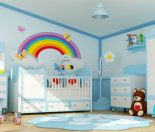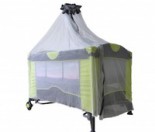This article provides ideas, help, and advice on all the major features of prams & buggies & strollers. There are so many styles of prams & buggies & strollers to choose from you may not know where to start …
When it comes to buying prams and buggies, you have almost as many options as when you are buying a family car. There are traditional 4 wheeled prams, 3 and 4 wheeled ‘off road’ buggies, pushchairs, strollers and combinations of all four. Prams and buggies seem to be morphing together to make a whole new breed….and one buggy really can be all things to all people!
So which pram or buggy will suit your needs?
Just which pushchair / pram / buggy is right for you depends on lots things including lifestyle, the number of children you have (or are planning to have), budget, and even the size of your car boot. Of course style and taste come into the mix, but you have got to get the practicalities right first.
A pram or buggy is one of your major baby purchases, so it is worth doing a little research. If bought properly, a good pram or buggy will last you through several children and will still have a relatively strong resale value when you have finished your baby years.
When buying a pram or buggy you should ask yourself:
“What am I buying this for?”
“What MUST this pram do?”
…not everybody will have the same response or priorities.
Do you want a pram that your baby can sleep in from birth, or will you only be using it once baby can sit up? Will you be using the buggy for long walks (or runs) in the park, or is it just to get out and about around town? Do you want to still be using the pram when your baby is 3 or 4, or is it just to get through the first year or two? There are dozens of options available, so these simple questions will help you decide the best fit for you.
5 things to consider when making your pram choice –
Folding the pram or buggy away
How easy is it to put up and down with one hand? I mean it! There will be times when you have a crying baby, a bag of groceries to juggle and a cell phone ringing all at the same time. You need to be able to put up your pram in a single movement and it should be light enough to throw in the car boot without huffing and puffing. There are plenty of lightweight, easy-to-assemble options available, so if you have not found one yet, keep looking. You’ll thank me for it!
How big is your car boot?
Some prams and buggies are deceptively big when they are folded down and even some station wagons are not big enough for particular models. Before you hand over the money, make sure the pram fits in your car. Literally take the shop assistant by the hand and ask to put the pram in your boot. I know it sounds simplistic, but no matter how great the pram is, if you cannot fit it in your boot it is not the right pram for you.
How big are the wheels of the pram or buggy?
…and what are they made of? Generally speaking the larger the wheel, the smoother the ride and the more places you can take your buggy. Blow up wheels provide the comfiest ride, but they can puncture fairly easily, so take that into account if you are doing ‘off road’ type of walking. The traditional ‘mountain buggies’ really can be taken anywhere, but they are not necessary if your ‘anywhere’ is made up mostly of shopping malls and footpaths.
If you are looking at a more traditional pram, still take the wheels into account. Rubber wheels beat plastic wheels every time and size is also still important. Small wheels are a real pain on cobblestones, gravel paths or grass, especially if you cannot lock them into place. Swivel wheels are great for manoeuvring small shopping aisles and tight corners, but are not so great if you are more outdoorsy. The best option is to find front wheels that both lock and swivel.
Different sitting positions for your baby
Does the pram or buggy have different sitting positions and are you able to clip your baby’s car seat capsule straight into the pram? Both of these things are important to consider if you are planning on using your pram or buggy from birth.
If you want to use the pram as a day cot when your baby is young, you will want a pram that can be laid completely flat or has a carrycot attachment. Having a ‘clip in’ system for your baby’s car seat capsule means that baby can keep sleeping as you transfer them from the car to the pram and you won’t need to lug the car seat around crowded shopping malls. While you may think carrying the baby car seat is quick and easy now, your arms and hips will soon tell you otherwise.
If you want a pram that takes you from birth through to 3 or 4, you will need to make sure your child has a sitting up position, as well as a resting place. Even if you do not plan on your child sleeping in the buggy when they are older, I can guarantee they will fall asleep in it at some time. It is important that you can lay them back when this happens.
New Zealand Safety Standards for Prams & Buggies
Has the pram or buggy passed the New Zealand Safety Standard? In New Zealand it is not compulsory for all prams and buggies sold to have passed the voluntary safety test. This means that there are huge differences between the qualities of prams available. For your baby’s sake, make sure your pram carries the New Zealand Safety Standard tick and a manufacturer’s warranty.
The consumer website www.consumer.org.nz has a great section on baby buggies. It provides results of the safety tests they conducted on various models, and offers their recommendation for the safest models on the market.
What do I really need for prams & buggies?
What you really need in a pram or buggy depends on your lifestyle, but the above questions cover the most important aspects. Some of the other things to consider include:
- How much space does it have to hold baby bags and shopping?
- Is the fabric easy to clean and are any pieces removable so they can be thoroughly washed?
- Does the pram or buggy have a toddler seat or ‘kiddy board’ accessory available? If you are planning on having more than one child, this will allow your toddler and newborn to travel in the same pram at the same time. Well worth the investment.
What would be nice to have?
There are all sorts of options available for making your pram perfect for you. Of course you can survive without them, but it’s always nice to have a few extras.
Some ‘nice to have’ features to look out for:
- Reversible handle so you can walk with baby facing you (so you can gaze adoringly at them!) or facing away. Both positions have pros and cons, so having a reversible handle means you get the best of both worlds and you can pick and choose when it suits you (and baby!). The best reason to have a reversible handle is that you can always walk with baby facing away from the sun….no matter what direction it is shining from.
- Instead of a traditional safety bar across the front of the pram, some pushchairs have a play tray. A play tray is of no use for young babies, but it is great for toddlers to store their drinking cup, a few snacks and a couple of toys.
- Sun shades which clip right around your pram. If you have a baby who likes to look around, these types of sun shades might not be practical (unless you want them to go to sleep, in which case they are perfect!). Wrap around sun shades also double as great insect protectors.
- Storm covers are great for keeping out the wind and rain, although if it is that wet and cold you probably will not be going far with the pram anyway. A good sun shade will keep off a light shower.
- Hand brakes on the buggy handle. These are quite useful if you plan on taking baby running with you, or do a lot of walking ‘off road’. It is a great safety feature for parents with an active lifestyle.
- There are all sorts of padded seat liners which make baby’s ride a little more comfortable. Make sure whichever sort you choose can be machine washed.
How much will prams & buggies cost?
Just like buying a family car, prices of prams and buggies vary dramatically depending on your chosen make and model. New prams and buggies range from about $300 right up to $1000 and you can get umbrella style strollers for less than $100.
Each pram or buggy comes with varying accessories, so when you are making the purchase, make sure you check out exactly what comes with it. You may be paying for accessories you just do not want or need, or you may find a seemingly expensive model is cost effective when you consider the add ons included.
Like most big purchases, there are lots of things that influence the price of prams and buggies. For the most part, you really do get what you pay for in terms of quality, however there is still some degree of ‘snob’ value attached to certain brands. Find makes and models that give you what you need, compare prices between brands and stores and then buy the best you can afford.
How can I save money on prams & buggies?
If you want to purchase your pram or buggy new, make sure you shop around (a lot)! The same buggy can vary in price between stores and often you can find a similar buggy of a different brand for hundreds of dollars less. Once you have decided exactly which one you are going to purchase, ask the sales assistant for the best possible deal they can give you. Some of the things they may be able to help with include:
- Giving you last year’s colour. Just like tents, pram manufacturers change their fabric every year or two to stay in style. If the new model has already come out in stores, you may be able to buy the old colour at a reduced rate.
- Taking stock from the showroom floor. If your pram or buggy is the last one left, you may be able to get a discount by taking the ‘shop model’, especially if the style is due to change or the store is discontinuing that particular model. Do not be afraid to ask – you might be doing them a favour.
- Giving you free accessories. Sometimes sales assistants do not have the authority to give you a discount, but they may be allowed to give you something for free. Of course anything is nice when you get it for nothing, but you do not have to take the first thing on offer. Ask for the accessory you need, rather than settling for one you did not really want in the first place. You might surprise yourself.
- Ask if they have a loyal shoppers club you can join. This will not necessarily give you a discount straight away, but every dollar you spend will be recorded and you will receive vouchers or rewards when you have spent a certain amount. A big purchase like a pram will put you well on the way.
Buying a pram or buggy second hand can also save you money, but be aware that a second hand pram does not come with any hygiene or safety guarantee and the manufacturer’s warranty has probably expired. Weigh up the condition of the pram and find out how old it is, where it was originally bought and how much it cost new. You should not have to pay any more than half the original retail, even if the pram is in perfect condition.
Where do I buy prams and buggies from?
All large department stores have a nursery section and there are specialist baby stores which have every pram and buggy imaginable. There are also some great online nursery stores, but be sure you have seen the make and model in real life before placing your order and take into account any shipping costs or currency conversions. It is easy to get caught out with online shopping if you have not done your homework.
If you are looking for second hand prams and buggies try looking in the following places:
- Second hand stores that specialise in baby gear. Ask your local Plunket branch to recommend one in your area, or Google by ‘baby gear’ for stores in your area.
- Baby groups such as Plunket, Playcentre, and Multiple Birth Clubs usually have a noticeboard or newsletter available for members. Ask if you can put in an ad detailing what you are looking for.
- Newspapers or ‘Buy and Sell’ magazines can put you in touch with people without the middle man, and you still get to see the item in real life before you make the purchase.
- Online auction sites can give you drastically different results, depending on who you are trading with. Make sure you check out the seller’s feedback before committing to any purchase. For the most part, once you have won the auction you are committed to buy, so make sure you have all the details and plenty of photographs before placing a bid.
Useful articles
For information on those other essential baby products see our Kiwi Families articles on High Chairs and Cots & Bassinets
For information and advice on coping at home in those first few difficult weeks, see our article by midwife Paula Skelton First Six Weeks






